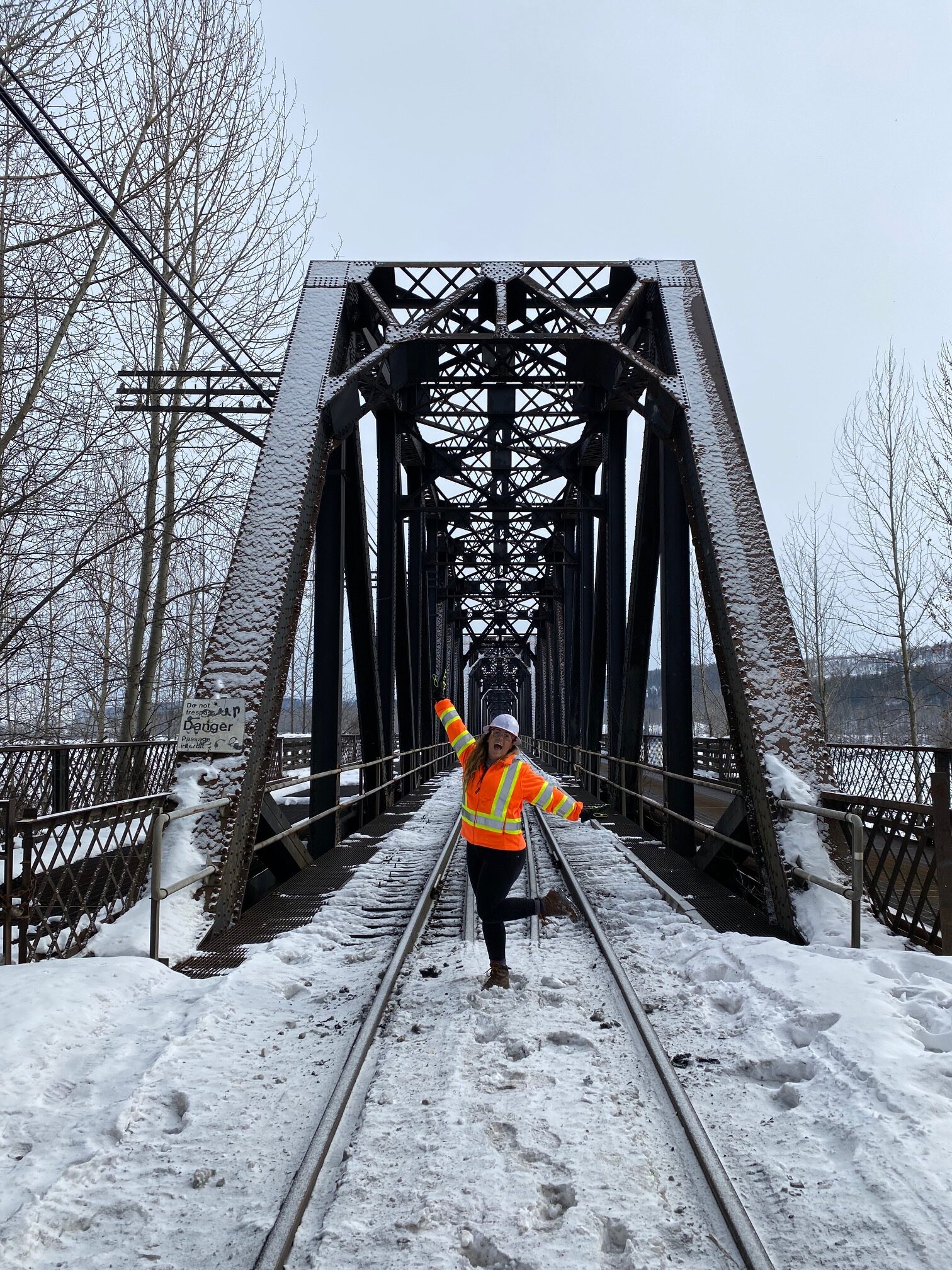
We acknowledge that the UBC Vancouver campus is situated on the traditional, ancestral, and unceded territory of the xʷməθkʷəy̓əm (Musqueam).
Meet our Alumni: Bianca Malouf, Manager Industrial Hygiene
Meet Our Alumni: Bianca Malouf

Current job description
Promote, manage and update industrial hygiene programs at Canadian National Railway, such as Confined Space Entry, Hearing Conservation, Respiratory Protection, Chemical Management, Lead Exposure Control, Silica Exposure Control, Temperature Extremes, and Indoor Air Quality. Work with cross-functional teams to increase industrial hygiene awareness at all levels of the organization. Provided information on industrial hygiene research for ongoing medical and legal cases in Canada and the US. Manage and influence a small, highly effective team of hygienists, empowering them to do their best and meaningful work while promoting a positive and safe learning environment.
Career Story
After graduating, I moved to Fort McMurray, Alberta, to work for one of Canada’s largest oil and gas producers. There, I was able to learn from some amazing hygienists and worked in some really interesting and unique environments. Personal reasons had me leaving Fort McMurray to return to live in Vancouver and start a Fly In, Fly Out (FIFO) job at a diamond mine in the Northwest Territories. Diamond mining was a very formative experience for me, it was where I would have my first role managing IH programs, leading a small team and participating in higher level discussions on leading IH indicators and KPIs. It’s where I got to operate my cats, push buttons on an underground drill and participate in emergency response scenarios. From there, again, for personal reasons, I started working for a ship construction, repair, and ferry company on the lower mainland. The best part of that work was the people; many engaged folks in the field were willing to work together toward improving worker exposure. From that experience, I started my own company as a health and hygiene manager in Kitimat, BC, for a large construction company. Managing 285 contractors gave me solid experience in helping companies meet strict health and safety programs, auditing, educating and supporting various companies worldwide. It also helped my career by managing COVID response for a FIFO site of over 4000 people and working with local health agencies. Lastly, I started my career at CN almost two years ago and have faced new and interesting challenges that I had not previously faced.
I look forward to planting my roots for a while and enjoying being back in Montreal, Quebec, my hometown.
Why did you choose the UBC MSc OEH program?
While studying at McGill Biochemistry, I realized after three years that I was more excited to hear about what my roommates were learning in environmental health than I was about pipetting and western blots. So I added a minor in environmental health to my bachelors degree, and thank goodness I did! I got to work with a lead environmental epidemiologist studying the effects of industrial pollution on kids in the east end of Montreal, Quebec. That study confirmed my interest in environmental health, and that professor recommended that I attend the best university in Canada for environmental health, the University of British Columbia. I connected with amazing professors such as Mieke Koehoorn, Karen Bartlett and Christopher Carlsten. Chris and I connected on Exhaled Breathing Condensate and diesel exhaust exposures, and a master’s thesis idea was formed! I applied and was accepted into the UBC SOEH MSc program, and the rest is history 😊
How has the degree helped you in your career?
My degree helped me understand the essential building blocks of the industrial hygiene knowledge base that working IHs benefit from; it makes learning everything else easier. The program helped build my self-confidence in solving problems, finding information, and knowing that while you may not have the answer, you know where you can find it, research it, or even who to ask. The professors and the program helped spark my love for industrial hygiene and connect me with hygienists from all over North America.
Any tips or advice for prospective and current students?
Follow what you love, what interests you, and what gives you the most excitement. I struggled through an undergrad that never sparked my interest, but I told myself I had to complete it because I was good at it. It wasn’t until I found environmental health that my love for learning came back, and where learning was easy. The world of industrial hygiene is a learning journey, so make sure you love learning it 😊 Following what you love and what brings you excitement ensures your career will always be fulfilling and engaging.